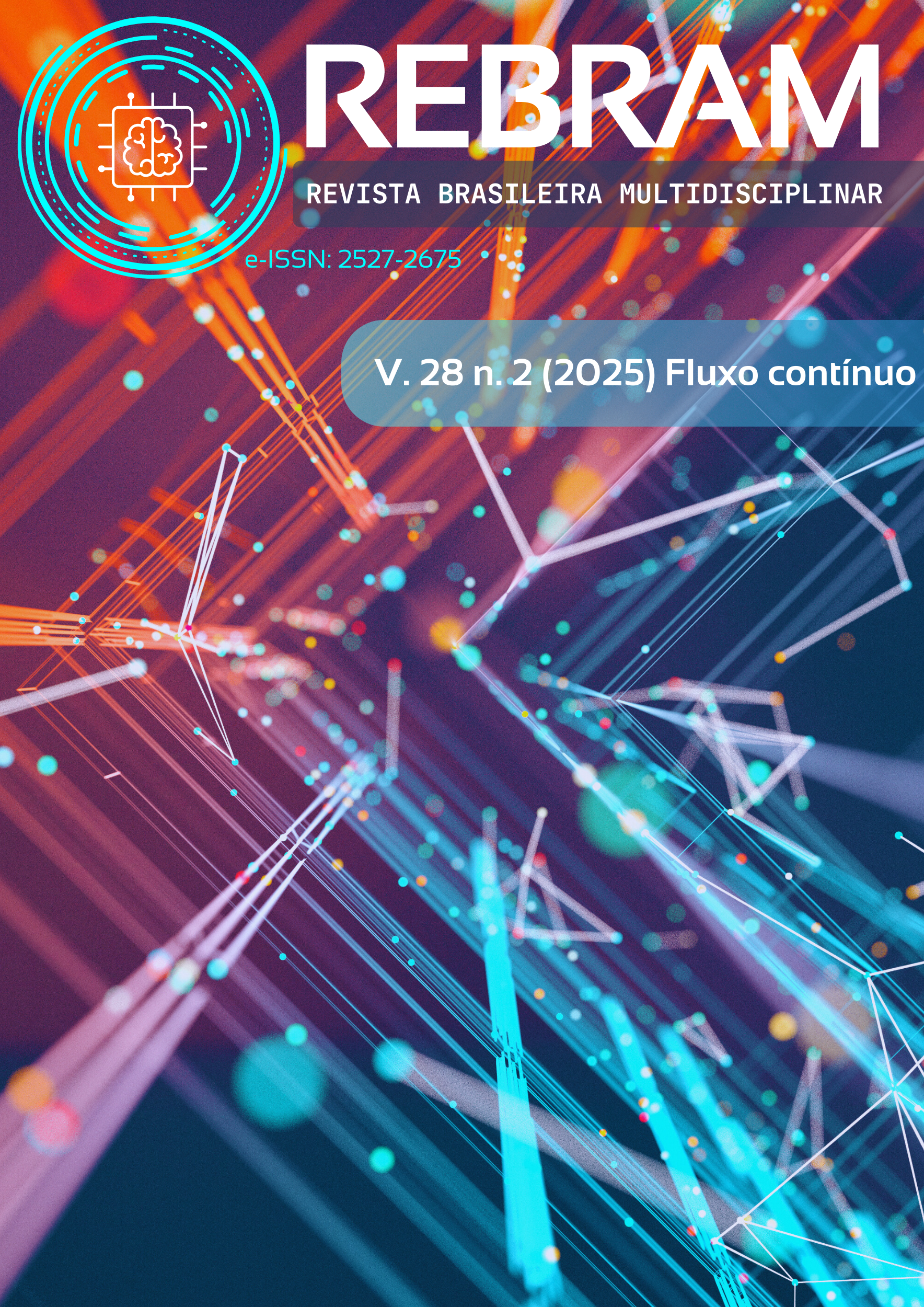Awareness of electricity consumption as a learning tool in Physics: case study with High School students
Main Article Content
Abstract
Sustainability aims to balance current needs with the future capacity of our planet, ensuring that present generations do not compromise future generation. Achieving sustainability in the energy context involves adopting practices to minimize waste and reduce the environmental impact associated with energy generation and consumption. Sustainable measures include implementing renewable energy sources such as solar and wind, and promoting conscious consumption behaviors. In this regard, this study assessed the impact of reducing electricity consumption in households of students enrolled in the Integrated High School at the State Technical School José Martimiano da Silva, after implementing sustainable practices learned in the Physics class. To evaluate the reduction in electricity consumption, students measured consumption in kWh by reading residential electricity meters. A reduction in electricity consumption was found in 88% of the analyzed sample, ranging from 191 kWh to 88 kWh, following the implementation of sustainable measures focused on reducing consumption. Additionally, participants from each course presented various ideas for mitigating energy consumption, spanning from the application of smart technologies and systems to the implementation of efficient design strategies, data analysis, and administrative management. Thus, the results underscore the importance of educational programs in raising awareness and promoting changes in energy consumption behavior.
Downloads
Article Details

This work is licensed under a Creative Commons Attribution 4.0 International License.
• The author (s) warrant that the contribution is original and unpublished and that it is not in the process of being evaluated in other journal (s);
• The journal is not responsible for the opinions, ideas and concepts issued in the texts, as they are the sole responsibility of the author (s);
• Publishers have the right to make textual adjustments and to adapt the article to the rules of publication.
Authors retain the copyright and grant the journal the right of first publication, with the work simultaneously licensed under the Creative Commons Attribution License, which allows the sharing of work with acknowledgment of authorship and initial publication in this journal.
Authors are authorized to take additional contracts separately, for non-exclusive distribution of the version of the work published in this journal (eg publish in institutional repository or as book chapter), with acknowledgment of authorship and initial publication in this journal.
Authors are allowed and encouraged to publish and distribute their work online (eg in institutional repositories or on their personal page) at any point before or during the editorial process, as this can generate productive changes as well as increase the impact and citation of the published work (See The Effect of Free Access) at http://opcit.eprints.org/oacitation-biblio.html
References
AZZINI, H. A. D.; CYPRIANO, J. G. I.; SOUZA, W. A.; MONZANI, R. C.; SILVA, L. H. C. P.; SILVA, A. C. V. Comparação das técnicas de monitoramento de cargas para a desagregação do consumo de energia elétrica. In: Anais do Congresso Brasileiro de Automática-CBA. v. 1, 2019.
BORGES, J. C.; PRESA, S. A. B.; COSTA, S. Geração de energia em larga escala por Usinas Termelétricas: uma questão sociocientífica no ensino de física. Revista Práxis, v. 11, n. 22, 2019.
BORGES, C. C.; DICKMAN, A. G.; VERTCHENKO, L. Uma aula sobre conversão de energia utilizando bicicleta, motor, alternador e lâmpada. Revista Brasileira de Ensino de Física, v. 40, n. 2, e2504, 2018.
CARVALHO, G. O. Sustentabilidade e desenvolvimento sustentável: uma visão contemporânea. Revista Gestão & Sustentabilidade Ambiental, v. 8, n. 1, p. 789-792, 2019.
CENTRO DE EDUCAÇÃO SUPERIOR A DISTÂNCIA (CESAD). Refletindo um pouco mais sobre os PCN e a Física. Disponível em: https://cesad.ufs.br/ORBI/public/uploadCatalago/11191125042012Didatica_e_Metodologia_para_o_Ensino_de_Fisica_I_aula_4.pdf. Acesso realizado em 05/02/2024.
CORTESE, T. T. P.; COUTINHO, S. V.; VASCONCELLOS, M. P.; BUCKERIDGE, M. S. Tecnologias e sustentabilidade nas cidades. Estudos Avançados, v. 33, p. 137-150, 2019.
DIAS, G. F.; SALGADO, S. Educação ambiental, princípios e práticas. Editora Gaia, 2023.
ENERGY INFORMATION ADMINISTRATION (EIA). Hydropower made up 66% of Brazil’s electricity generation in 2020. Disponível em: https://www.eia.gov/todayinenergy/detail.php?id=49436. Acesso realizado em 08/02/2024.
FILHO, R. L. B.; PEREIRA, A. R. S.; MAIA, E. M. Parâmetros Curriculares Nacionais – Ensino Médio. Disponível em: http://portal.mec.gov.br/seb/arquivos/pdf/ciencian.pdf. Acesso realizado em 05/02/2024.
HAMMEL, C.; MIYAHARA, R. Y.; SANTOS, S. A. Uma UEPS com enfoque CTSA no ensino de Física: geração, produção e consumo de energia elétrica. Experiências em ensino de ciências, v. 14, n. 1, p. 256-270, 2019.
JARDIM, W. T.; GUERRA, A. Práticas científicas e difusão do conhecimento sobre eletricidade no século XVIII e início do XIX: possibilidades para uma abordagem histórica da pilha de volta na educação básica. História da Física e Ciências Afins, Rev. Bras. Ensino Fís. v.40, n. 3, 2018.
MARINHO, M. Geografia Física no ensino superior: entendimentos preliminares do conceito e das relações com a natureza. Revista Ponto de Vista, v. 9, n. 3, p. 39-56, 2020.
MINISTÉRIO DA EDUCAÇÃO (MEC), Secretaria de Educação Média e Tecnológica (Semtec). PCN + Ensino médio: orientações educacionais complementares aos Parâmetros Curriculares Nacionais – Ciências da Natureza, Matemática e suas Tecnologias. Brasília: MEC/Semtec, 2006.
MONTEIRO, I. F. C.; SOUZA, P. D. E. B.; MONTEIRO, C. O. A educação ambiental e as representações sociais dos professores da rede pública no ensino fundamental. Revista Brasileira de Educação Ambiental (RevBEA), v. 12, n. 1, p. 165-176, 2017.
MOURA, F. E. Construção e aplicação de um jogo de tabuleiro sobre a temática do consumo de energia elétrica residencial no contexto da sala de aula de Física. 2020. 91 f. Dissertação (Mestrado Profissional em Ensino de Física) – Universidade Federal de Sergipe, São Cristóvão.
PEREIRA, P. S. de S.; FORTUNATO, I.; LOURENÇO C. A educação ambiental em periódicos brasileiros de ensino de física. Revista Brasileira de Educação Ambiental (RevBEA), v. 11, n. 2, p. 127-138, 2016.
RUFINO, L. R.; CAMARGO, D. R.; SÁNCHEZ, C. Educação Ambiental Desde El Sur. Revista Sergipana de Educação Ambiental, v. 7, p. 1-11, 2020.
SILVEIRA, D. P.; LORENZETTI, L. Estado da arte sobre a educação ambiental crítica no Encontro Pesquisa em Educação Ambiental. Praxis & Saber, v. 12, n. 28, p. 88-102, 2021.





